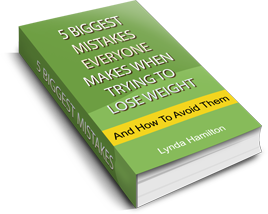Vitamin & Mineral Absorption
Improve your nutrition by helping your body absorb the vitamins and minerals in your diet.
 Vitamins and minerals can be a confusing bunch; some are water soluble, others are fat soluble and some need a little bit of something else to help the body absorb as much of the vitamin or mineral possible.
Vitamins and minerals can be a confusing bunch; some are water soluble, others are fat soluble and some need a little bit of something else to help the body absorb as much of the vitamin or mineral possible.
Here are a few simple tweaks you can make to your diet that will boost your nutrition and help your body absorb greater quantities of the vitamins and minerals in you are eating.
Eat Iron with Vitamin C
Iron is an essential for the transportation of oxygen around the body, and a deficiency can lead to lethargy, depression and a poor immune system. There are two types of iron: heme and non-heme. Heme iron is found in liver, red meat, shellfish and tuna fish, and is easily absorbed by the body because it originates from animals. Non-heme is found in green leafy vegetables, beans, lentils and fortified products like cereal, but this form is not so readily available for the body to absorb.
Scientists have discovered that the body can absorb up to 6 times the amount of non-heme iron if vitamin C is added to the meal, so round off your supper with a piece of fruit or drink a glass of fruit juice.
Bear in mind that drinks with a high polyphenol content like red wine, coffee, tea, herbal tea and cocoa also inhibit absorption of non-heme iron because they bind with it in the intestine so the body cannot absorb it, so avoid these drinks with the meal or straight after it.
Caffeine Inhibits Calcium & Iron Absorption
Break the habit of having a cup of tea or coffee over breakfast or directly after a meal because the caffeine inhibits the body’s absorption of iron and calcium. There is also evidence that caffeine increases the excretion of potassium, magnesium and phosphate too, so try not to drink more than 3 cups a day, and always wait a couple of hours after eating.
Fat-Soluble Vitamins Need A Little Fat
Contrary to the low or no fat diet fads of the 80s and 90s, the body actually needs some fat to function at its optimum, and many vitamins need a little bit of fat to be absorbed by the body. The trick, of course, is to only consume good fats, preferably monounsaturated fats found in olive oil, nut oils, olives, avocado, nuts and seeds. Monounsaturated fats actually lower bad cholesterol, potentially increase good cholesterol (although the scientific jury is still out on that one), and they are high in vitamin E which is a potent antioxidant.
So which vitamins are fat soluble?
- Vitamin A found in carrots and other orange vegetables like pumpkin and sweet potato; broccoli, spinach, melon, apricots, papaya, liver and eggs.
- Vitamin D found in fish and eggs.
- Vitamin E in avocado, sunflower seeds, kale, spinach, peppers, asparagus and papaya.
- Vitamin K in green leafy vegetables like spinach, kale, lettuce, broccoli and brussel sprouts.
The easiest way to add monounsaturated fat to the diet is to eat a few nuts or seeds alongside or after the meal (a few being 8-12), or in the case of a salad, drizzle with a teaspoon of olive or nut oil. Bear in mind that meat and cheese naturally contain fat so if you are eating these as part of a balanced meal, then you do not need to add extra fat to your meal.






 Follow Us On Twitter
Follow Us On Twitter Like Us On Facebook
Like Us On Facebook Watch Us On YouTube
Watch Us On YouTube
Leave a Reply